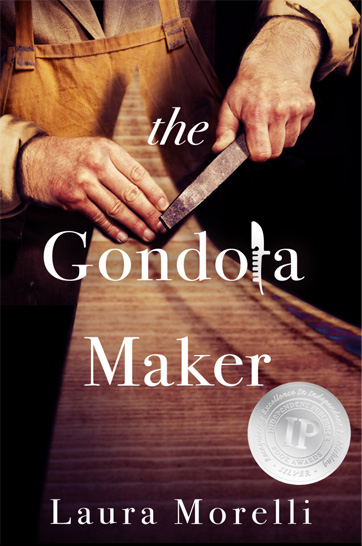
Book Review of Laura Morelli’s novel “The Gondola Maker”

Un viaggio virtuale in Italia tra le pagine di un romanzo
Taking part in a virtual journey in Italy through literature
Sto partecipando a un Virtual Book Tour organizzato da Laura Fabiani di Italy Book Tours. Il nuovo libro di Laura Morelli, intitolato “The Gondola Maker”, è un’avventura affascinante e storicamente ricca.
I am taking part in a Virtual Book Tour organized by Laura Fabiani of Italy Book Tours. Laura Morelli’s new book, “The Gondola Make”, is a fascinating and a historically rich adventure.
La trama del romanzo — un’anteprima
The novel’s plot — sneak peek
Sono stata felice di avere tra le mani una copia del nuovo libro di Laura Morelli, “The Gondola Maker”. Il libro ha catturato la mia attenzione fin dalla prima riga: “Mi mordo il labbro inferiore mentre aspetto di vedere la gondola di mio padre prendere fuoco” e l’ha mantenuta fino all’ultima frase: “Dolcemente, apro la porta.”
I was delighted to get my hands on a copy of Laura Morelli’s new book, “The Gondola Maker.” The book caught my attention from the first line: “I chew my lower lip while I wait to see my father’s gondola catch fire” and held it all the way to the very final sentence: “Gently, I open the door.”
Un viaggio emozionante attraverso Venezia
An emotional journey through Venice
È intrigante che il libro inizi con la “fine” di qualcosa di bello e si concluda con l’anticipazione di un nuovo “inizio”. Nel mezzo, Morelli ci porta in un bellissimo viaggio nella Venezia del XVI secolo, in cui il protagonista Luca Vianello rifiuta il suo destino per abbracciarne uno nuovo.
It is intriguing that the book starts with the “ending” of something beautiful and concludes with the anticipation of a new “beginning.” In between, Morelli takes us on a beautiful journey through 16th-century Venice, where the protagonist Luca Vianello rejects his destiny to embrace a new fate.
L’arte e il mestiere dei gondolieri
The art and craft of gondola makers
Morelli crea una storia ricca di dettagli ed è evidente che ha un grande interesse nel dipingere un quadro più completo sugli artigiani veneziani, sui loro segreti e sulla trasmissione di queste conoscenze attraverso le generazioni.
Morelli crafts a story rich in detail, making it clear she has a deep interest in depicting Venetian artisans, their secrets, and how this knowledge is passed from one generation to the next.
Alla scoperta della Venezia nascosta
Discovering hidden Venice
Seguendo Luca nel suo viaggio, scopriamo la Venezia che va oltre i canali e i palazzi: i conventi, le taverne, i latrine pubbliche e perfino le famigerate prigioni veneziane sotto il Palazzo Ducale.
Through Luca’s journey, we discover a Venice that extends beyond canals and palaces: convents, taverns, public latrines, and even the infamous Venetian dungeons beneath the Doge’s Palace.
Un racconto tra realtà storica e finzione
A tale of historical fact and fiction
Pur essendo una storia di finzione, Morelli intreccia incidenti documentati nella trama, mostrando chiaramente la rigida struttura sociale di Venezia nel XVI secolo.
Although a fictional story, Morelli weaves documented historical events into the narrative, showcasing the rigid social structure of 16th-century Venice.
Luca Vianello e il coraggio di reinventarsi
Luca Vianello and the courage to reinvent oneself
In una società così rigida, era difficile reinventarsi e sfidare il proprio destino. Tuttavia, Luca trova il coraggio di creare un nuovo futuro e scoprire un amore inaspettato.
In such a rigid society, it was challenging to reinvent oneself. Yet, Luca finds the courage to forge a new future and discover an unexpected love.
Una lettura imperdibile
A must-read
In conclusione, ho trovato “The Gondola Maker” una lettura eccellente, ricca di dettagli storici e piacevole da seguire. Morelli ha mantenuto la gondola a galla fino alla fine. Ben fatto! Grazie, Laura, per una splendida opera di narrativa!
In conclusion, I found “The Gondola Maker” to be an excellent read, rich in historical detail and thoroughly enjoyable. Morelli kept the gondola afloat until the end. Well done! Thank you, Laura, for a wonderful piece of fiction!
If you love novels set in Italy, don’t miss Melissa Muldoon’s books!
Dive into romantic adventures set in the captivating cities of Florence, Arezzo, Rome, and Montepulciano. Melissa’s second novel, “Waking Isabella”, is also available in Italian! Treat yourself to an armchair journey through Italy and let yourself be swept away by the charm of these enchanting locations.
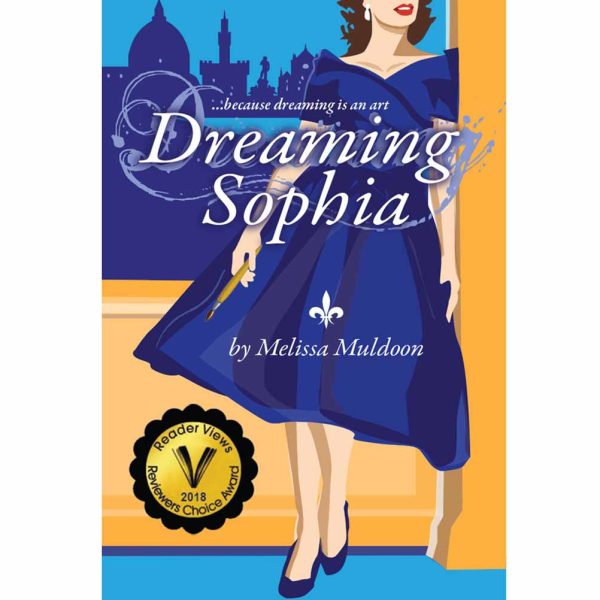
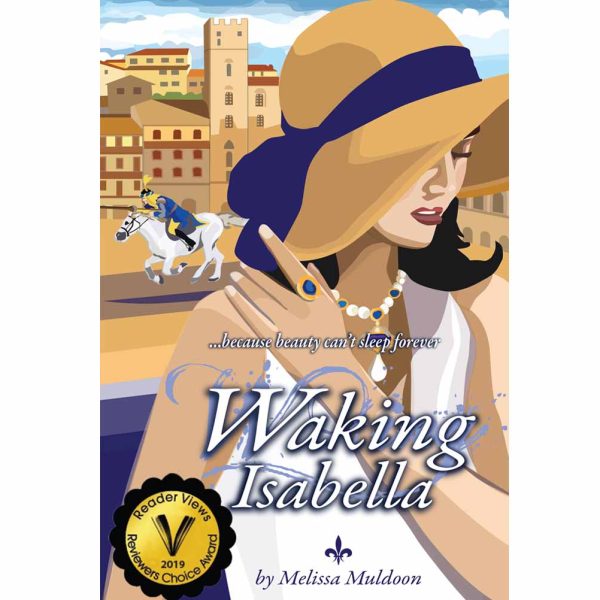
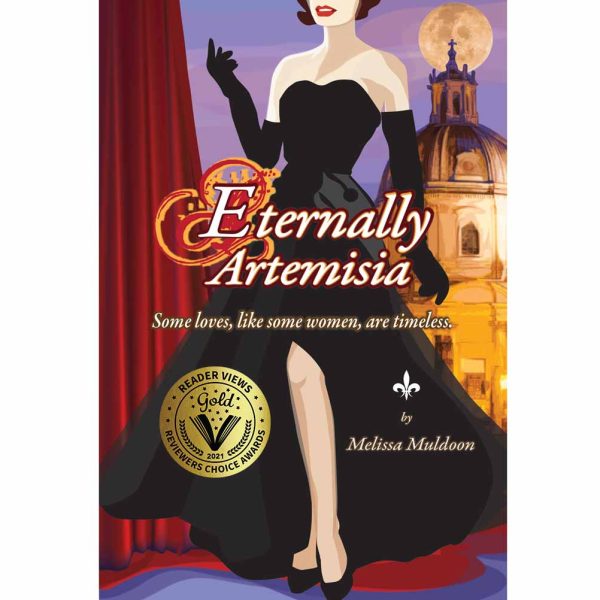
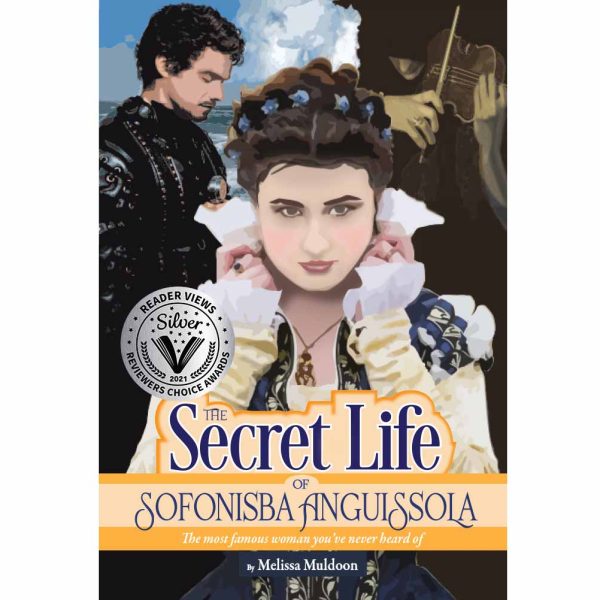
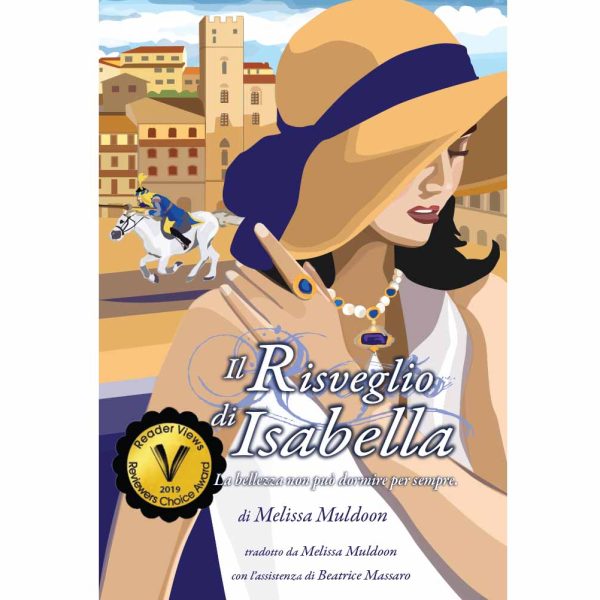
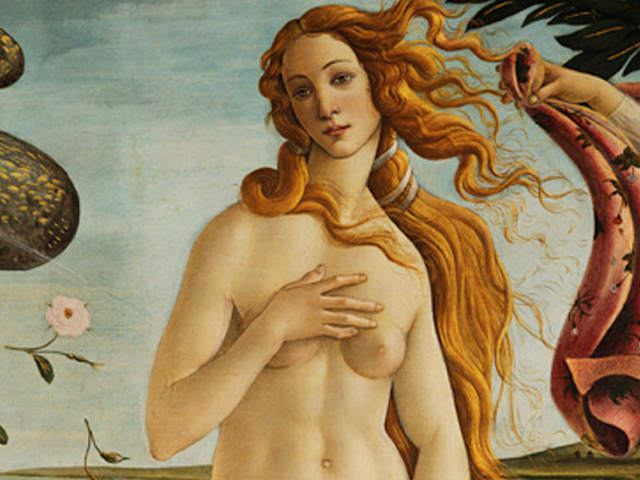


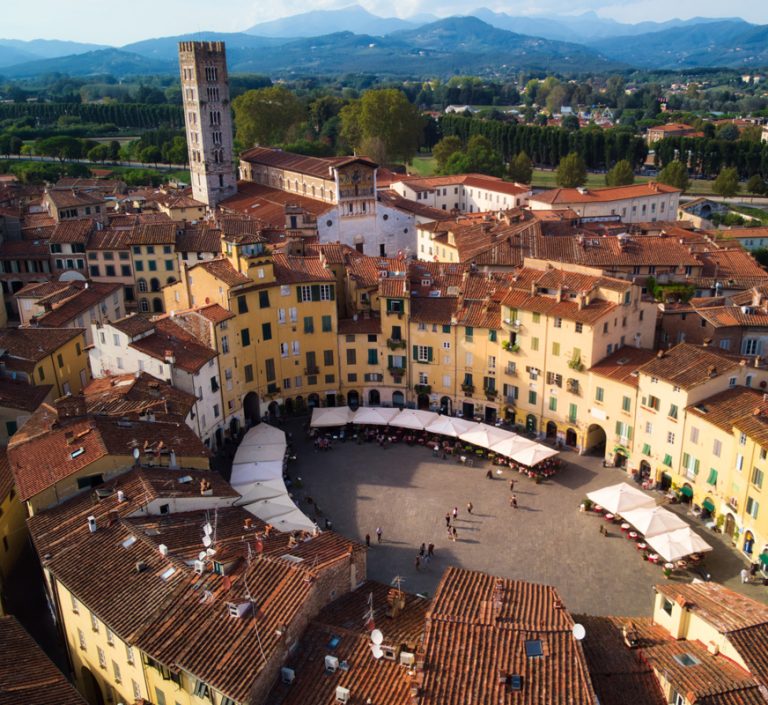
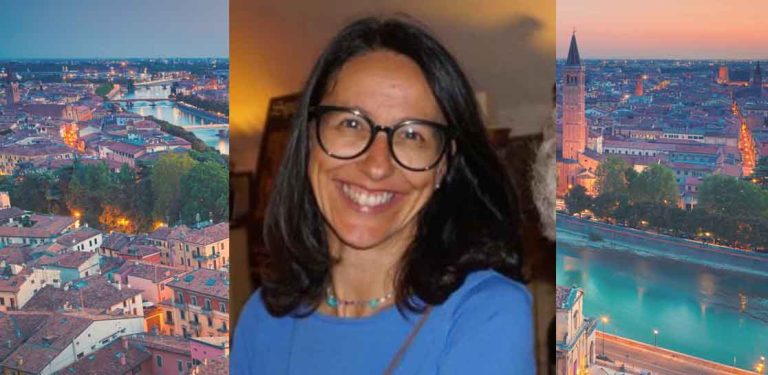
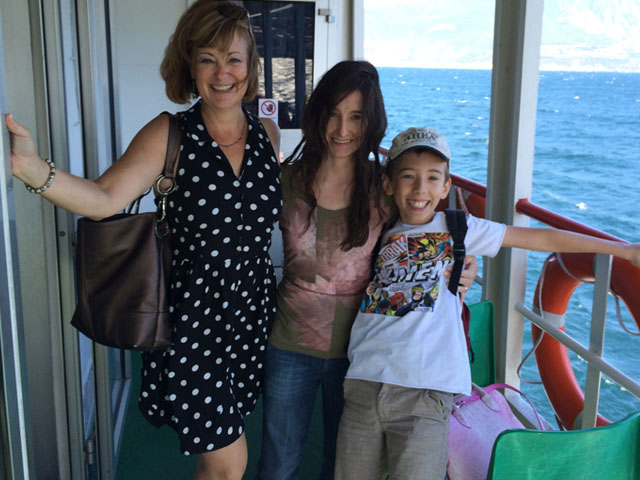





Il libro sembra molto interessante. Come tanti, sono affascinata dalle gondole e mi piacerebbe un giorno remarne una.
Ciao Simona! è bello fare una gita in gondola. Una mia amica americana si è sposata con un italiano che è un gondoliere a Venezia. La prossima volto che tu vai a Venezia lui può darti una gita! che ne pensi? 🙂
Thank you, Melissa, for this great bilingual review. I appreciate the time you took to read THE GONDOLA MAKER and I’m so glad you enjoyed the story!
Ciao Laura! I really did love your book. The story was wonderful and so full of great details. It is nice to come across a book that leaves you satisfied at the end. Looking forward to your next project. A presto!
A proposito,sto leggendo un libro ambientato anche a Venezia.Si chiama”Il fuoco” ed è stato scritto da Gabriele D’Annunzio.Lui scrive molto bene ,ma non ho la più pallida idea di che succede, nonostante sia arrivato alla pagina 50.Il protagonista sta facendo un giro in gondola con una donna è stanno solo chiacchierando tra loro.Invece, il libro di Laura Morelli mi sembra davvero interessante e lo aggiungo alla mia lista dei libri da leggere.
Ciao Leo! Ricordi che ho appena fatto un podcast su della mia visita alla villa di Gabriele D’Annunzio! Era un autore italiano molto popolare, ma un po’ strano. Non ho già letto i suoi libri…forse se ho tempo …vediamo un po’ . Mi è piaciuto il libro di Laura, i dettagli sono fantastici e mi è piaciuto le descrizioni di Venezia, i cantieri, i palazzi e anche la bottega dell’artista.
What an awesome post and giveaway! I missed the chance to participate in the book tour and so upon seeing your post I saw hope that perhaps I could have a chance to own this book after all! I’m a big fan of Italy having been there twice last year and this year. This year it was for three months from June to September. I haven’t been to Venice so I’m really hoping for it! Thank you again!
Ciao Alice! Thanks for stopping by! Good luck in the book contest. Where were you this year in Italy? Would love to hear about your Italy experiences. I will be in Rome next July and Lucca next September! You should join me and work on your Italian! A presto!